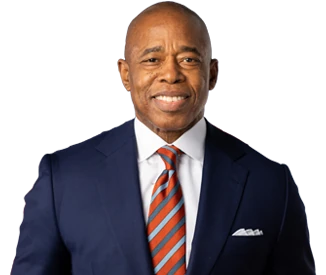Defying expectations and party orthodoxy, New York City Mayor Eric Adams has officially left the Democratic primary and will run for reelection as an independent. His decision, first reported by Politico, comes on the heels of a major legal victory after a federal judge dismissed the bribery case against him with prejudice, clearing his name after months of speculation and headlines.
Why Adams is going independent
For Adams, this is about taking his case directly to the people — unfiltered by party politics. Facing a crowded Democratic primary led by former Governor Andrew Cuomo and influenced by far-left challengers like Assemblymember Zohran Mamdani, Adams chose not to risk getting bogged down in a fight that would likely sideline him before the general election.
Adams explained to Politico that he intends to build “a real independent campaign,” focusing on the outer boroughs and the working-class and minority communities that lifted him to victory in 2021. These voters, often overlooked by political elites in Manhattan, remain key to his path forward.
And while critics argue that his approval rating is low, Adams is clearly betting on substance over polls — prioritizing public safety, responsible governance, and quality-of-life improvements, even when they have made him unpopular with some in his own party.
The Biden DOJ’s now-dismissed charges
It’s impossible to ignore the timing of the federal charges against Adams, brought by Biden’s Department of Justice in September and dismissed just this week. Adams has not shied away from raising concerns about the nature of the case, which he suggests was politically motivated. He told Politico the ordeal was painful and personal, but also reaffirmed his commitment to leading independently, free from undue political influence.
At a press conference, Adams even pointed to Kash Patel’s book Government Gangsters, which critiques what it calls a politicized justice system. Adams stopped short of blaming Biden outright but has consistently been more critical of the White House’s border and migrant policies than of Trump’s — a notable distinction in a heavily Democratic city.
Can he win?
History says it will be tough, but not impossible. While New York has never elected a pure independent mayor, it has occasionally rewarded candidates who challenge the status quo, from John Lindsay’s narrow independent reelection in 1969 to Michael Bloomberg’s success as a party-switcher.
Adams faces structural challenges — including limited access to public matching funds — but he enters the race as an incumbent with name recognition, a record of reducing crime, and significant appeal to everyday New Yorkers who care more about results than ideology.
The fact that more than 220,000 additional voters have registered as independents since 2017, according to Politico, could play directly into his strategy.
The bigger picture
Adams’ campaign is more than just a local political story. In many ways, it echoes the larger national debate about the direction of the Democratic Party and the dangers of political polarization. Adams has been clear: he’s not running against Democrats, but against extremism, dysfunction, and the political forces — left or right — that prioritize slogans over solutions.
Critics will say Adams is isolated. Supporters will say he’s independent. Voters will have the final say.
In his own words, Adams told Politico, “Now I need this runway until November to redefine and remind people: This is why you elected me in the first place.”
Given Adams’ resilience, work ethic, and appeal to working-class New Yorkers, dismissing his chances might be premature — especially in a city that has often surprised political insiders.
Disclaimer: This article is an opinion and analysis piece based on publicly available information. The news of Mayor Eric Adams’ independent candidacy was first reported by Politico. All direct quotes and exclusive details originally reported by Politico are properly attributed. The opinions and analysis expressed herein are solely those of this publication and are not affiliated with, endorsed by, or reflective of Politico or its reporting.




